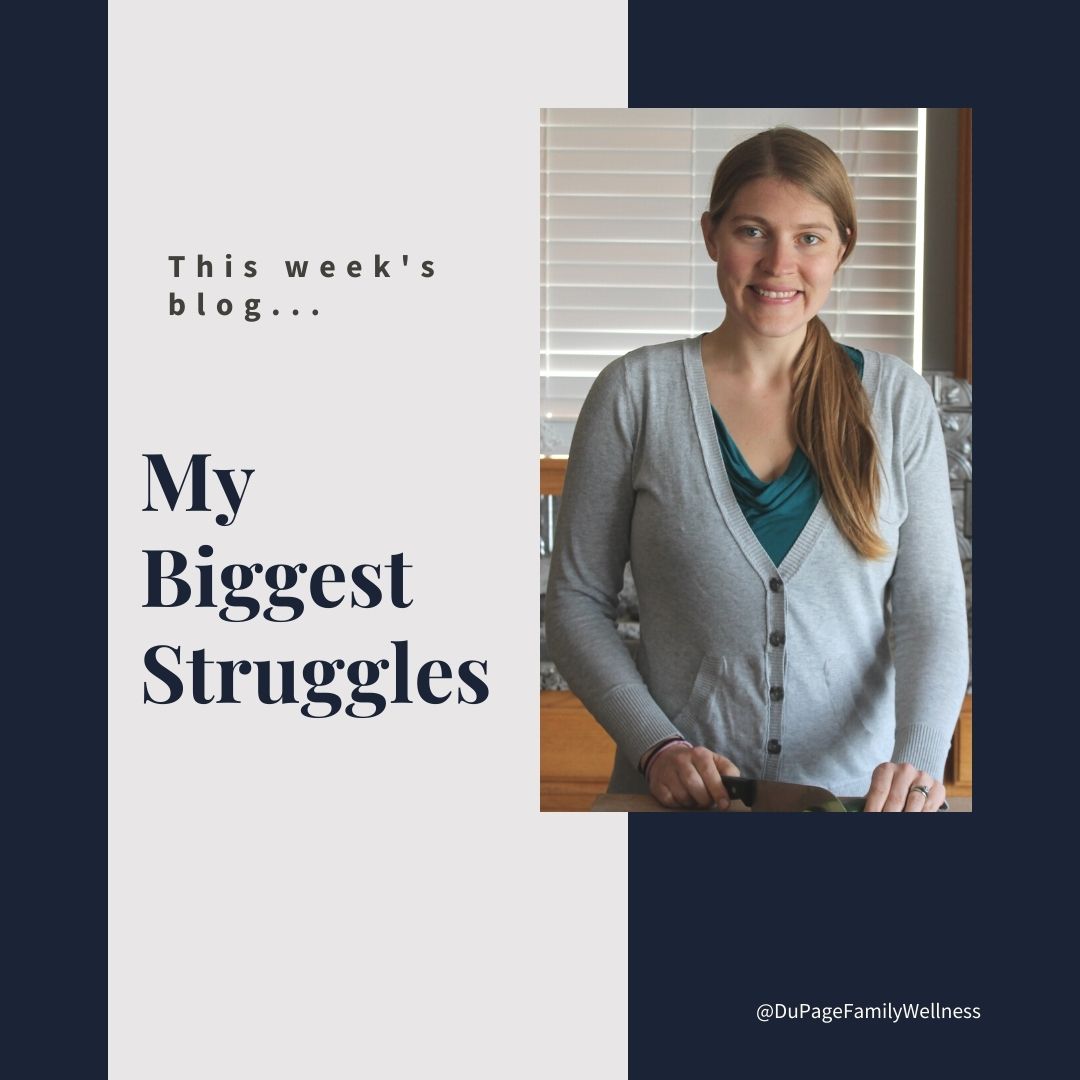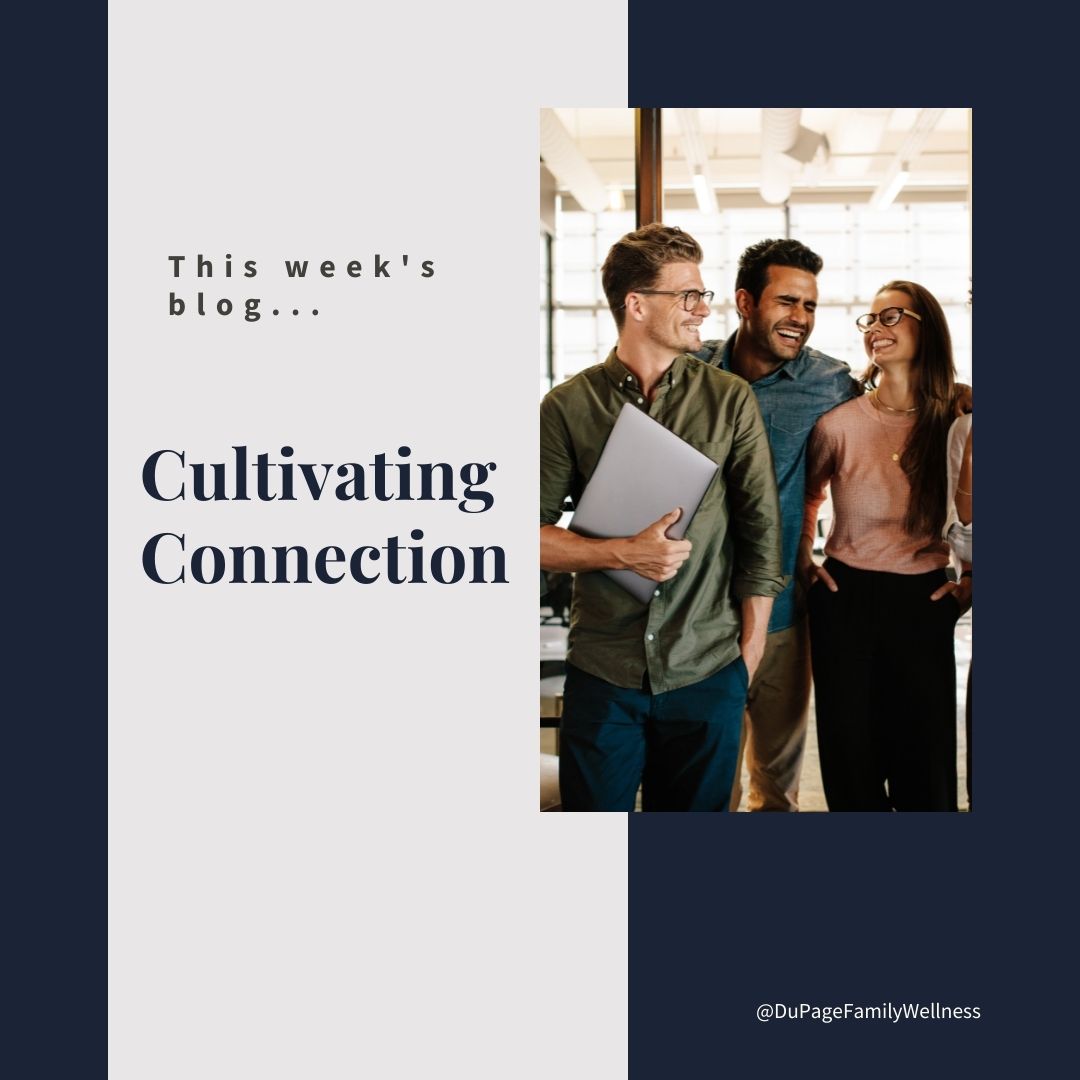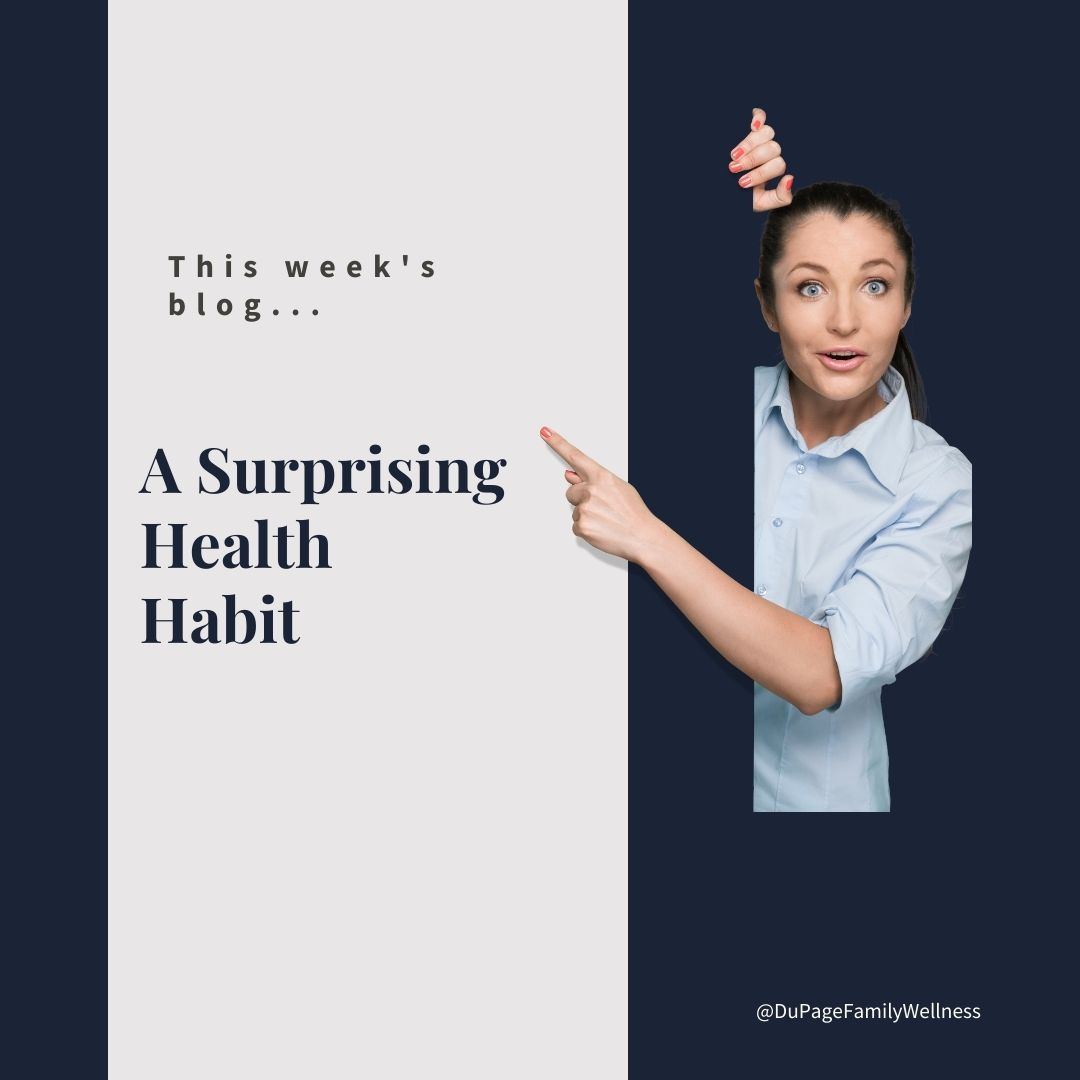 Reading my articles each week may lead you to believe that I've really got my act together. So, I wanted to write a blog to be really honest with you all about the things that I struggle with.
Reading my articles each week may lead you to believe that I've really got my act together. So, I wanted to write a blog to be really honest with you all about the things that I struggle with.
I feel like when I put out content each week about how to eat better, how to sleep better, how to have less stress in your life, how to move in a more ideal way, that everyone thinks that I am able to do all of these things all of the time.
Let me be the first to tell you that that is just not the case. I am completely human, and I am doing my best, but I am definitely not able to follow all of my own advice all of the time.
So.... in no particular order, here are some of the things that I do or think about that are not perfectly aligned with the weekly blogs that I send out.
Don't Apologize
I have patients that come in and apologize to me for "falling off the wagon with their diet." or "cheating" on when it comes to eating healthy foods. I want to let you know that I do not judge you or think of you any differently based on which foods you choose to eat. In my opinion, there is no such thing as "cheating" on your diet. To cheat, is taking an unfair advantage of something. It's just food. With each meal, we make a choice on how we are going to feed our body. We can choose more nutrient dense food or less nutrient dense food. It is not something that any of us need to have guilt or shame around.
Eating
Our family gets busy and orders pizza, tacos, and Thai food. No, we don't cook every single meal from scratch with real, whole food ingredients. There is probably 1 night every week or 2 that we have no plan for dinner, it is late, and these are our go tos! I figure if we eat well most of the time, we are doing great and getting the nutrients that we need!
Sleep
My children wake me up in the middle of the night.... just about every single night. One is nursing at night still, and the others wander into my room at least a few times a week. I try to prioritize sleep, but sometimes it is a struggle.
Movement
I haven't done a "good workout" where I get sweaty since I was pregnant with Madison in 2020. Yes, I move. I go for walks. I sometimes pull up a quick yoga video on my phone or have a kitchen dance party with my kids... but a planned workout... at a gym... with weights has not happened! I know that this would be good for me, but I have yet to actually schedule it and make it a priority.
Read more ...
 You may know by now that strong social connections are important to your physical and mental health. Connections improve your immune system and increase your chance of longevity. The importance of strong connections cannot be overstated.
You may know by now that strong social connections are important to your physical and mental health. Connections improve your immune system and increase your chance of longevity. The importance of strong connections cannot be overstated.
In fact, studies which “control for baseline health status, consistently show increased risk of death among persons with a low quantity, and sometimes low quality, of social relationships.”
If social connections are so important, how do we cultivate them? Let's look at the ways we can foster connection in our relationships with others and with ourselves.
Making Time
It’s important to make time for important people in your life. If you are lucky enough to have people that you connect with on a deep level, make them a priority.
Relationships take time. There are no shortcuts when it comes to building relationships. You need to invest time in them if you want quality connections.
Often life is busy, and connections don’t always happen easily. When there are many demands for your time, it may be important to schedule time with those you love. Put it on your calendar and make it a priority.
If you don’t make time for this, you will miss out on the opportunity to deepen your connection with people.
Minimize Distractions
Try to limit distractions. Some people find they need to get out of their house because at home too many other things vie for their attention. Sometimes parents enjoy focused time with friends without their kids around.
It can also be important to put the cell phone away when you are with those you love. Research has found that just the presence of a cell phone can interfere with feelings of closeness and connection.
Minimizing distractions allows you to enter into the activity or conversation you are having, and it shows the other person you are really invested in your time together.
Fostering Community
Sometimes we don’t have people who are available to connect with us in a meaningful way. But there is a simple way to cultivate a sense of community.
Simply talk with people that you interact with on a daily basis. Even saying “hello” to a service provider or someone you pass on the street can begin to create a feeling of connection with your community.
Read more ...
 You may think that eating well, getting adequate movement, refraining from smoking, and limiting alcohol are the things you need to do to stay healthy. But research shows that there is something surprising that we should add to our health habits. Enjoying social connections is more important for our health than most people realize!
You may think that eating well, getting adequate movement, refraining from smoking, and limiting alcohol are the things you need to do to stay healthy. But research shows that there is something surprising that we should add to our health habits. Enjoying social connections is more important for our health than most people realize!
In a culture obsessed with hard work and accomplishments, social connections can feel like a luxury reserve for when the real work is done. But if we are truly putting our health first, connection is of utmost importance for both our physical and mental health.
Let’s look at the research that may lead us to adding social connections to our list of healthy habits!
Social Connections Impact on Emotional & Physical Health
It’s not hard to believe that those who feel more connected with others tend to struggle less with anxiety and depression. They also have higher self-esteem, greater levels of empathy, trust others more, and tend to be more cooperative. But the extensive impact on physical health may come as a surprise to many.
According to Dr. Emma Seppala, the American Association for the Advancement of Science published a study that found that “a lack of social connection is a greater detriment to health than obesity, smoking and high blood pressure.” A lack of social connections is actually linked to obesity levels, inflammation, and hypertension.
Is it Really that Important?
It may be shocking, but strong social connections improve your immune system and lead to a 50% increased chance of longevity. More research is needed to discover why social connections have such a dramatic impact on health, but the research is clear that social connections are extremely important if you want to live a long and healthy life.
In fact, research done by Housekarl, Landis, and Umberson found that “studies which control for baseline health status, consistently show increased risk of death among persons with a low quantity, and sometimes low quality, of social relationships.” They explain that “social isolation is a major risk factor for mortality from widely varying causes.”
When Thinking About Connection
It is important to realize that you don't need to be physically with someone to have a social connection. If you feel seen, heard, and understood, that is enough to feel connected to others.
On the other hand, it is possible to feel isolated and alone, even if you are surrounded by people. This is because a sense of connections don’t automatically happen when you get together with people.
Brené Brown defines connection as “the energy that exists between people when they feel seen, heard, and valued; when they can give and receive without judgment; and when they derive sustenance and strength from the relationship.”
Read more ...
 You may have heard of insulin resistance, but has anyone taken the time to explain what it is?
You may have heard of insulin resistance, but has anyone taken the time to explain what it is?
Often, we only think of blood sugar and insulin in the case of diabetes. But blood sugar and insulin have an important function in everyone’s body.
Did you know that if you are struggling with insulin resistance, it can make it REALLY EASY to gain weight and REALLY DIFFICULT to lose it (regardless of how much you are eating?!)
Let's look at this important process so we understand what is going on in our bodies and can make wise choices surrounding blood sugar and insulin.
The Connection Between Blood Sugar and Insulin
Our body functions best when our blood sugar is just under 100 (75-99). It will work to stay around that range by releasing the hormone insulin.
Insulin is what helps the sugar to go from our blood into our cells (Specifically liver, muscle, and fat cells). Pretend that our cells have doors on them, and the insulin is the key that opens those doors, allowing the sugar to go through the door into the cell.
When we eat food, especially carbohydrates, our blood sugar goes up. Our brain recognizes that there is too much sugar in the blood, so it releases insulin.
If the body is working at an optimal level, the insulin acts like a key and begins to open the cell's doors. The sugar is able to get in the cell, the blood sugar goes back to a comfortable level, and the sugar is stored in the cell for future use.
There is a nice cycle of getting hungry, signaling that your body needs sugar. Feeling full when your body gets the sugar into the cells. Feeling hungry when the body needs more sugar and so on.
When the Keys Don’t Work Well
If you have insulin resistance however, the insulin doesn’t work very well. It’s like the keys aren’t working. It may take 2-4 hours to open the doors when it should just take an hour.
When the brain notices the sugar is still in the blood and not in the cells, it decides it needs to do something about it. That’s when the brain tells the body to release more insulin and this results in an unhealthy level of insulin circulating through the body.
What actually causes Insulin Resistance? Here are just a few of the many possibilities
- Genetic Predisposition
- Vitamin and mineral deficiencies (Vitamin D and B12 to name a few)
- Toxic exposure (BPA in plastics and Agent Orange exposure are just 2 examples, but there are likely thousands)
- Having chronically elevated blood sugar
As you all should know by now, I love to relate everything to our ancestors. When we are looking at our ancestors through a lens of insulin resistance, there were certain times that it was actually beneficial to be more insulin resistant. Think about the seasons for example. When would our ancestors have eaten higher amounts of fruit/sugary substances? This would happen in the late summer as fruits are reaching their peak ripeness. Eating higher amounts of sugar (especially fructose in fruits) signaled to their bodies that it was time to start preparing for winter by putting on some body fat. This process allowed our ancestors to survive a winter when food was more scarce. Unfortunately for us, we constantly have access to high fructose/sugar foods, and almost never have a time that food is scarce. This is probably the most likely contributing factor to the fact that 88% of our population is not in ideal metabolic health.
Read more ...
 If you had a medical condition that could explain a number of your difficult symptoms, would you want to know? Most of us would, as long as we could find effective treatment for the condition and start feeling better.
If you had a medical condition that could explain a number of your difficult symptoms, would you want to know? Most of us would, as long as we could find effective treatment for the condition and start feeling better.
One group of women who could really benefit from knowing where their symptoms are coming from are those with Polycystic Ovary Syndrome (PCOS). PCOS is a hormonal disorder affecting 10% of women, but only half of them know that they have it. The other half have no idea what is causing their frustrating symptoms.
I’d like to invite you to learn just a little bit about PCOS. It is likely that you know at least one woman who is suffering from these symptoms without any idea that there are simple changes she can make to help!
Symptoms
Symptoms of PCOS may include one or all of the following…
- irregular cycles
- weight gain (especially around the middle)
- acne
- hair loss on the head
- hair growth on the face or in more of a traditional make pattern (hirsutism)
- sugar cravings and hangry attacks
- anxiety, depression and more
Many women with these symptoms feel like something is wrong with themself. They need to be told that it’s not their fault. Learning about PCOS and what is driving their symptoms can bring hope that they haven't had in a while.
Diagnosis
In order for a doctor to diagnose you with PCOS you need to meet at least two of the following criteria.
- Lack of ovulation causing irregular (or no) periods.
- Higher androgen (male hormones) that may result in acne, hair loss on the head, hair growth on the face and back. This can be tested via labs, or simply visible in symptoms.
- Multiple small cysts on the ovaries visible on ultrasound.
This means that you don’t have to have cysts on your ovaries to have PCOS!
What Next?
While there is no cure for PCOS, there are many things you can do to address the root causes of the condition and control your symptoms. For many women with PCOS the root cause may be any combination of the following issues
- insulin resistance
- thyroid
- adrenals
- inflammation
When the underlying cause(s) are addressed, many of the symptoms will become manageable and even disappear altogether.
I love helping women with PCOS understand their bodies better and walk with them on their journey to health. If you or someone you love wants more information on PCOS, consider signing up for our free online PCOS class or joining our FREE Facebook group.
Dr. Jamie
*Not all doctors are equipped to make this diagnosis, so it can be valuable to work with a specialist. Please feel free to reach out to me. I would be glad to lead you in getting an accurate diagnosis.
 Reading my articles each week may lead you to believe that I've really got my act together. So, I wanted to write a blog to be really honest with you all about the things that I struggle with.
Reading my articles each week may lead you to believe that I've really got my act together. So, I wanted to write a blog to be really honest with you all about the things that I struggle with. 

 You may know by now that strong social connections are important to your physical and mental health. Connections improve your immune system and increase your chance of longevity. The importance of strong connections cannot be overstated.
You may know by now that strong social connections are important to your physical and mental health. Connections improve your immune system and increase your chance of longevity. The importance of strong connections cannot be overstated. You may think that eating well, getting adequate movement, refraining from smoking, and limiting alcohol are the things you need to do to stay healthy. But research shows that there is something surprising that we should add to our health habits. Enjoying social connections is more important for our health than most people realize!
You may think that eating well, getting adequate movement, refraining from smoking, and limiting alcohol are the things you need to do to stay healthy. But research shows that there is something surprising that we should add to our health habits. Enjoying social connections is more important for our health than most people realize! You may have heard of insulin resistance, but has anyone taken the time to explain what it is?
You may have heard of insulin resistance, but has anyone taken the time to explain what it is?  If you had a medical condition that could explain a number of your difficult symptoms, would you want to know? Most of us would, as long as we could find effective treatment for the condition and start feeling better.
If you had a medical condition that could explain a number of your difficult symptoms, would you want to know? Most of us would, as long as we could find effective treatment for the condition and start feeling better.